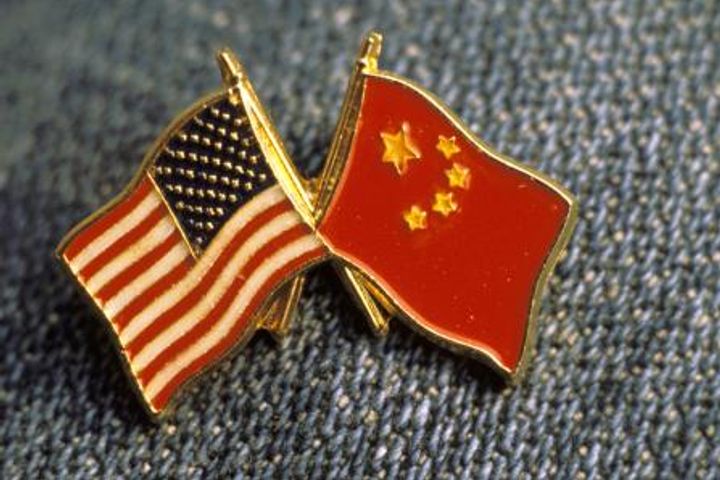 Xinhua Hits Back at U.S. Definition of Fair Trade
Xinhua Hits Back at U.S. Definition of Fair Trade(Yicai Global) Feb 8 -- China's state-run Xinhua News Agency ran a commentary sharply criticizing the U.S.'s approach to fair trade after President Donald Trump vowed to end "unfair trade practices" with overseas partners.
Xinhua accused the world's largest economy of trying to remodel global trade based on its own terms rather than the global consensus. Referring to Trump's State of the Union address and a speech he delivered at the World Economic Forum in Davos, Switzerland, Xinhua said putting fair trade before free trade is Washington's attempt to justify a slew of actions in recent months that are widely interpreted as protectionism.
Citing the rejection of Chinese companies trying to enter the U.S. market, Xinhua referred to AT&T Inc. abandoning distribution of Huawei Technologies Co.'s latest smartphone as well as Washington's veto of Ant Financial Services Group's proposed acquisition of MoneyGram International Inc.
While China welcomes Apple Inc.'s smartphone sales in its market, the U.S. banned Huawei from selling its handsets in its territory. Both firms sell smartphones. Yet Apple's, which are equipped with U.S. chips, can enter millions of households in China, while Huawei's with their China-made chips cannot access the U.S. It is plain to see who is erecting trade barriers, the commentary said.
The U.S. blocking government departments from buying Chinese tech products is understandable, but this time it is preventing Chinese mobiles from entering its private sector, Xinhua said. In other words, the U.S. government, which has always been known for promoting the free market economy, is using "visible hands" to obstruct the entry of foreign products. Such an approach sends a signal to the world that the U.S. ignores market economy principles and consumers' rights, benefitting only a few, it added.
When 'Fair' Is Unfair
These cases show that the U.S.'s definition of fair trade comes at the expense of other countries. On the one hand, China has opened its doors to the U.S. trade and investment. Products from Apple, Cisco Systems Inc. and Microsoft Corp. have sold well in China for many years, while China is further opening its financial and service sectors to the U.S. On the other hand, the U.S. has repeatedly blocked Chinese companies, Xinhua said, asking how such "fair trade," which puts the interests of one's country above international rules, can be acceptable.
U.S. concerns over China's rapid development and the steady advance of science and technology in the world's second-largest economy lies beneath the blockade of Chinese products and companies, Xinhua said. U.S. Commerce Secretary Wilbur Ross expressed his concern about China's high-tech challenge to his country at Davos last month. In fact, there is still a big gap between China's innovation and that in developed countries, Xinhua noted.
In the era of economic globalization, there is no isolated island, Xinhua said, protectionism cannot block competitors. China's brand power and growing reputation are the result of its continuous promotion of reform and opening up over the past 40 years.
Politicization of China-U.S. economic and trade issues will ultimately damage the interests of businesses and consumers in both countries. Only by abandoning a cold war mentality and increasing mutual share of common interests, can economic and trade relations develop in the right direction.